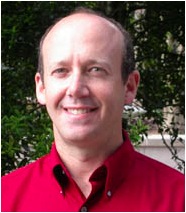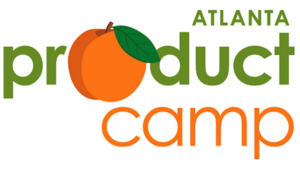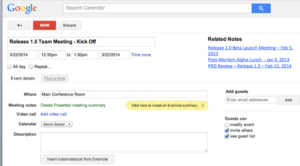 To continue our posts highlighting product management professionals in town, I spoke to Gary Palgon, who is currently VP of strategy and healthcare solutions at Liaisons Technologies. What I wanted to delve in with Gary on was how to build thought leadership as a product manager and on the various career paths product management offers, as he has had great experience in both of these areas. I am hoping he will convert some of his insights on becoming a thought leader into a ProductCamp presentation.
To continue our posts highlighting product management professionals in town, I spoke to Gary Palgon, who is currently VP of strategy and healthcare solutions at Liaisons Technologies. What I wanted to delve in with Gary on was how to build thought leadership as a product manager and on the various career paths product management offers, as he has had great experience in both of these areas. I am hoping he will convert some of his insights on becoming a thought leader into a ProductCamp presentation.
How did you get started in Product Management?
I came into product management via development. I was leading a team of developers and from there, gradually took charge of QA, product management and marketing.
What appealed to you about Product Management?
Being in front of customers and prospects and helping to understanding their needs. Further by ushering new solutions to market – how these needs are being solved. And seeing the success of these solutions – being there for the full lifecycle of the product.
How do you incorporate the customer into your product process?
It is important to understand business needs as opposed to technical needs. There are several ways of involving the customer. One good way is to create a customer advisory board for input. If it is an early stage company, this can mean involving friends and family, who might develop into prospects along the way. Then it is a matter of getting them engaged and getting feedback.
In terms of the release cycle itself, one way is to pilot new solutions with customers and get their input. Another is sharing or getting a list of features from customers, and prioritizing them jointly.
Talking of prioritizing, how do you keep you backlog groomed?
Customers always have a wish list. What you are trying to do is not solve every problem for everyone but see what affects most customers. Sometimes you also have high priority customers you need to cater to also. So you allocate some money that is coming in from these customers to serve some of their needs.
Then you have compliance or maintenance needs that are must dos. The third area are product ideas that will bring in new revenue – new solutions/modules etc.
You have to constantly balance the budget between these three areas.
If you had one piece of advice for Product Managers, what would they be?
Get out of the office – meet the customers!
What have you learned in product management ‘the hard way’?
The hardest part is to ask for a lot of money at once to develop a new product without having actual buyers. You invest in building the product and then you get buyers to fund it. A good way is to find a few customers quickly and make course corrections along the way.
What is your advice on making your own career path from within product management?
You have to broaden exposure. You can move to different parts of the organization from product management – you can move into the marketing side, or get into sales or presales. I have seen people move to presales and sales, starting from doing great demos for prospects.
What gets you promoted is success with the full lifecycle of the product. There is a lot of excitement with getting a new product to market and that is good exposure. Swing the pendulum the other way and there is a completely different skillset to learn in preserving solid maintenance revenue for legacy products. You can have success in preserving $2M of maintenance revenue that would otherwise have been lost. I did some of that early in my career and think success at the junior level comes from knowing both the sides.
So how do you rise up in product management?
You have to leave the boundaries of just ‘product management’. Regardless of position, a product manager is the ‘center of the universe’. I truly believe you get to see all parts of the business. Coming up the ladder gives you a 360-degree view of the whole organization – sales, business development, customer support, and implementations. It is a great way to expand into other roles.
You are recognized as a thought leader in the industries you work in. What is your advice on how to get there?
It is not about jumping in and tweeting every day. Take a stepwise approach. Don’t overwhelm social media. Distribute information that is of value – it is a marathon, not a sprint.
Then there is networking when you don’t need a job – just to learn and understand. Then apply what you learn to enhance your career.
People underestimate the knowledge they have to share. ProductCamp is actually a great, non-confrontational venue to share what you know.
If you move to a new industry, submerge yourself in the area – do a lot of reading of publications and talk to prospects. You can also link with people who are thought leaders in Linkedin or Twitter. Then start sharing your knowledge at local events and venues.
What are some of your favorite apps that you use every day?
I think my favorite app is Waze – it gives you real time traffic information. I also like SmartRContacts which captures and indexes





